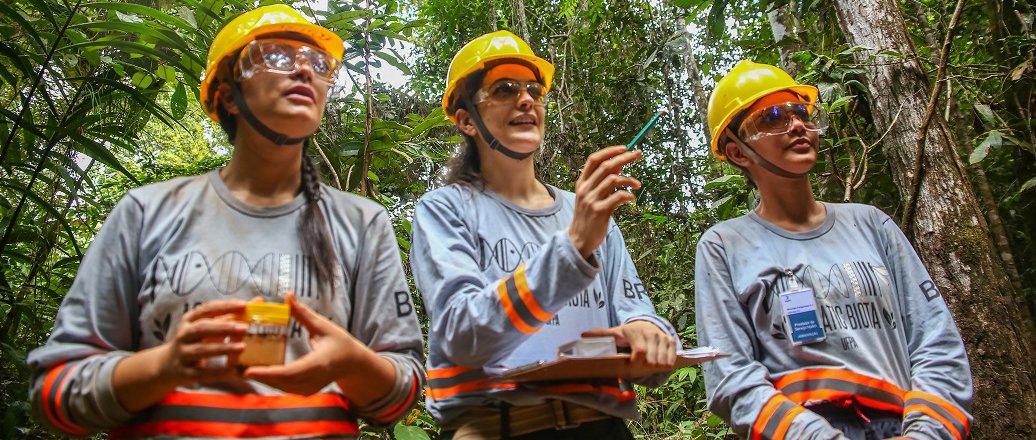As a child, Thaísa entered the "why" phase, as, like most children, she was curious about the world around her. Her parents' answers usually went in the same direction: "It is this way because someone studied and reached this result. This is science."
Years later, in 2021, as an ecologist and professor at the Federal University of Pará (UFPA), Thaísa Sala Michelan was recognized in the Life Sciences category of the "For Women in Science" program, an initiative of UNESCO, L'Oréal Brazil, and the Brazilian Academy of Sciences (ABC). The same UNESCO also implemented the International Day of Women and Girls in Science, celebrated on February 11th.
"When we talk about Ecology, we have interactions between species, individuals, etc. Some of these interactions can be harmful, and others are positive, right? So, my advice for women is to practice unity and empathy. I am very proud when a woman achieves something because it carries the strength of many other girls and women. Mutual support makes the journey within academia and science less painful," comments Thaísa.
Created to promote the role of women and girls in science, February 11th draws attention to data that are still very low, for example: only 28% of researchers worldwide are women, according to data released in the latest UNESCO report. According to the agency, this percentage is due to various factors: difficult access to investments; study networks; racial, class, and gender issues. Fortunately, a general increase can be noticed in Brazil, albeit modest. According to a survey by the Institute of Social and Political Studies (Iesp) of the State University of Rio de Janeiro (UERJ), there was an increase in women with master's degrees (2%), PhDs (3%), and in teaching positions (5%) in various areas of knowledge in the country, from 2004 to 2020.
"For girls and women who want to enter science, I always say not to underestimate your ability. Submit proposals regardless of the call for applications, the competition, and believe that you are capable. The companies, entities, agencies that promote research need to see that there are women who do science in Brazil and are qualified to carry out fantastic projects. This way, you pave the way for more women to achieve prominent positions and become a reference for others who are aiming to get there," comments Thaísa.
Professional and academic in harmony
Mayra Barral, a graduate from UFPA, even entered the world of science inspired by a friend. "I noticed that, especially in the field of environmental sciences, there were increasingly qualified professionals, with high degrees of education, and I needed to catch up. So, a friend of mine completed her master's degree, and I was inspired by her movement to seek new possibilities," says the environmental engineer who now works as an Environmental Analyst at Hydro Paragominas, holds a sandwich degree from the University of Ottawa, Canada, and a master's degree also from UFPA.
Mayra's master's thesis was even produced within Hydro Paragominas itself, combining professional and academic experience in the Graduate Program in Dam Engineering and Environmental Management at UFPA. "In my career today, I see how the professional experience has contributed a lot to the academic one. I think the first step for a woman who is starting is to discover what she really likes and evaluate how research on the topic will bring applicable results to society, meeting industry demands, for example, and the solution from academia," she concludes.
Thaísa Michelan, for instance, is currently working on monitoring aquatic plants in the Hydro Paragominas region, researching their occurrence patterns in the environment. The project is part of the Brazil-Norway Biodiversity Research Consortium (BRC), which is formed by Hydro, the University of Oslo, Norway, the Museu Paraense Emílio Goeldi, UFPA, and the Federal Rural University of the Amazon (UFRA). "Our participation in projects needs this incentive, so I always highlight the importance of companies in promoting research. Hydro, through the BRC, contributed to the construction of the laboratory, training of several students, and opened many doors for me as a researcher. This was one of the first projects I was approved as a coordinator. For the scientific community, it is extremely important to encourage new researchers," she explains.
: February 9, 2024







